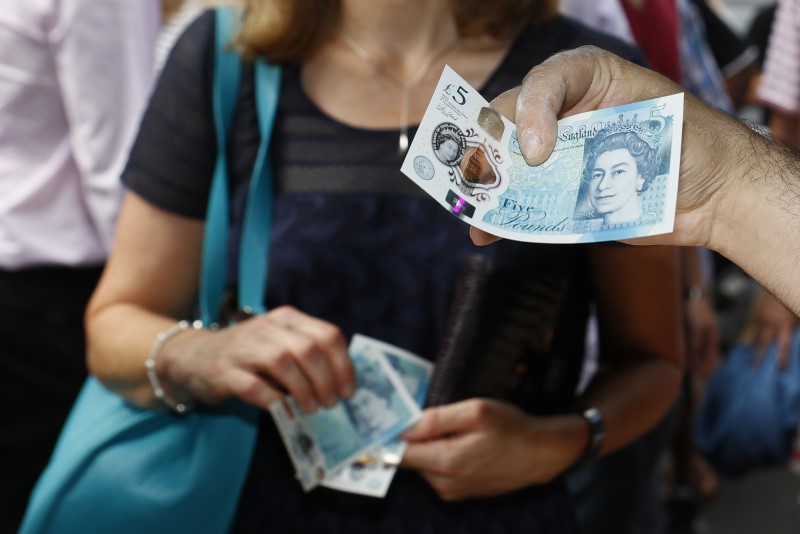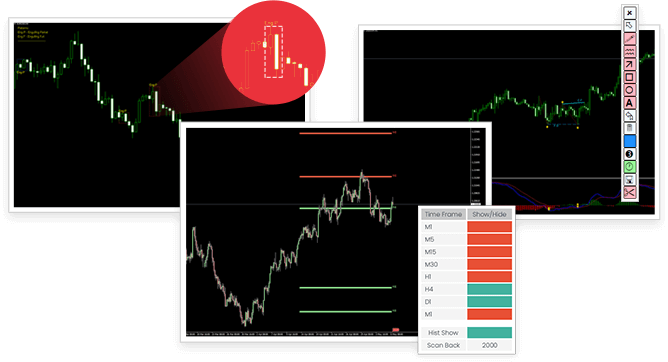
Brexit begins with British Prime Minister Theresa May poised to trigger Article 50 of the Lisbon Treaty on Wednesday, the formal launch of the UK’s two-year divorce proceedings from the European Union will get underway.
The long term outlook for sterling will be determined by the final Brexit deal, but shorter term price action will be dictated by shifting possibilities as fresh political developments emerge.
Sterling plunged from highs of $1.50 to a 31-year low of $1.32 in the aftermath of the June Brexit vote and is currently down around 14% against the U.S. dollar since the referendum.
Triggering Article 50 is likely to crystalize Brexit risks and the EU response to May’s vision for Brexit has so far suggested that a smooth transition to divorce is unlikely.
May outlined her Brexit strategy in a speech in January and has said repeatedly since then that she is prepared to walk away from negotiations without a deal if she is dissatisfied with the terms on offer.
She aims to leave the single market and clamp down on immigration. She wants a “bold and ambitious” trade relationship with the EU, but also the freedom to negotiate trade agreements with other countries.
Politics will dominate, at least in the early part of negotiations. The EU negotiating team’s response to Article 50 should become clear by the end of April and the EU stance will be critical in setting the tone for exit negotiations and trade deals with the currency bloc.
Meanwhile, UK inflation is at its highest level in over three years, retail sales have faltered and pay growth has slowed significantly, despite continuing low levels of unemployment.
The steep drop in sterling since the Brexit vote, combined with a recovery in global oil prices has pushed prices higher in recent months, leading to fears that rising inflation will erode consumer spending, the main driver of growth in the UK economy.
The BoE has said it expects inflation will peak at 2.8% in the second quarter of next year but many economists say it is likely to hit 3%.
Rising inflation has fueled expectations that the BoE could hike interest rates more quickly than expected, particularly after the minutes of the BoE’s March meeting showed that one policymaker voted for a rate hike.
According to analysts at MNI, the chances of a rate increase later this year have nearly doubled since the hawkish minutes.
“The market is now pricing in a 44% chance of a 25bp rate hike in Nov 2017, up from 25% last Monday as Kristen Forbes calls for a 25bp rate hike due to rising inflation and better growth, while there was some hawkish undertones from some other members in the MPC minutes as well,” MNI said.
But analysts at Morgan Stanley said in a note on March 21 that they think a rise in inflation driven by energy or by the sterling exchange rate is less likely to prompt tighter policy than rising pay growth or inflation expectations.
The prospect of another Scottish independence referendum also poses a risk to sterling, as it would lead to a prolonged period of political uncertainty on the domestic front.
Most forex analysts expect sterling to come under heavy selling pressure as the Brexit negotiations unfold. It could drop to parity with the euro and perhaps even against the dollar.
Currency analysts at Deutsche Bank said sterling could fall as low as $1.06 from around $1.2560 currently, as the Brexit process weighs.
In a special report on Brexit, they wrote “we do not see sterling (currently) fully pricing a hard Brexit outcome. Combined with limited adjustment in the UK’s current account deficit and slowing growth, we see further downside, and forecast $1.06 in by year-end.”
Other forex analysts don’t expect the triggering of Article 50 to have a major short-term impact on the pound, predicting that the currency could rebound as markets react positively once there is greater clarity on the issue.
Analysts at ING Group said in a research note that while they believe the broader risks to sterling lie to the downside, they expect the triggering of Article 50 to have more of a symbolic impact on the pound.
“It will serve as a reality check that a tricky few years lie ahead as Brexit negotiations unfold and a new UK-EU economic relationship takes shape,” the March 14 note said.
ING sees one final leg of Brexit adjustment left. “We look for GBP/USD to form a cyclical base below $1.20, while expecting EUR/GBP to stabilize between 0.88-0.90.”
Morgan Stanley thinks the triggering of Article 50 is already priced into sterling.
“There may be many Article 50-related news headlines in the coming weeks but we believe that a lot of the negativity around Brexit-related economic data weakness is already in the price,” analysts at the investment bank said in a note to clients on March 2.
But Bank of America Merrill Lynch is bearish on the outlook for sterling as Brexit looms.
“We reject the notion that sterling has fully priced Article 50 and beyond. Risks to the currency remain to the downside on a disruptive start to negotiations,” analysts said in a March 2 note.
Meanwhile, political risks to both the dollar and the euro remain to the forefront.
The dollar dropped to four-month lows against a currency basket on Monday after the Trump administration failed to push through legislation to overhaul healthcare when it didn’t receive enough support from Republicans.
The vote had been viewed by investors as a critical test of Trump’s ability to work with Congress to deliver on his pro-growth economic agenda, including tax cuts and infrastructure spending.
Dollar bulls had already been disappointed after the Federal Reserve hiked interest rates earlier this month, but did not signal a faster pace of future monetary tightening as many had anticipated.
The dollar had surged to almost 14-year highs against a basket of the other major currencies in early January amid expectations for a strong economic recovery and higher inflation, the so called ‘Trump Trade’.
Investors were also monitoring political developments in the euro zone ahead of the upcoming French presidential elections, with investors fearful over what a victory for far-right anti-EU leader Marine Le Pen would mean.
Source – Investing.com






















thanks